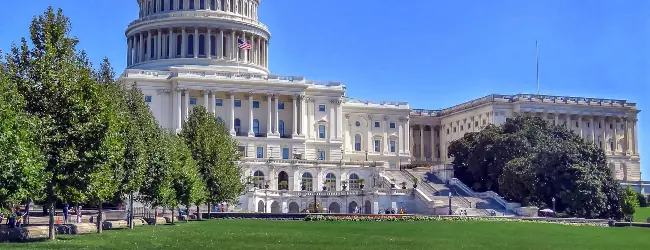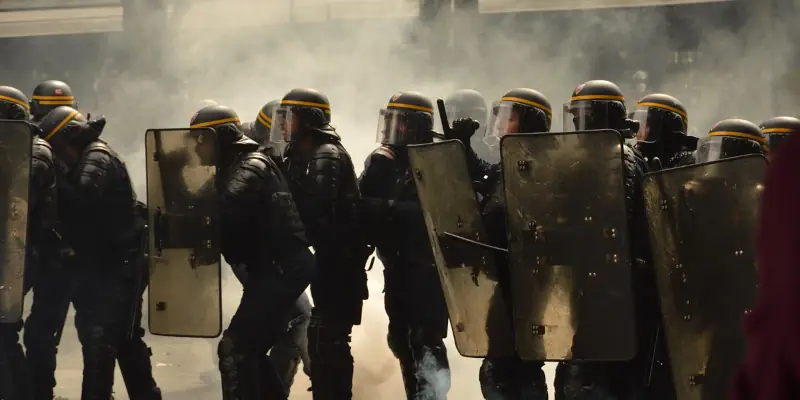In an earlier article (this article), I mentioned international tensions and conflicts. In my opinion, that confusion will increase worldwide for a while, about 5 or 10 years.
That made me consider how conflicts in the world intensify. Let’s talk about it.
How will the future unfold?
Sometimes, we want to reduce anxiety caused by the unknown and unexpected. An uncertain future makes us worry.
Predicting future possibilities calms our minds. Even if they are not accurate, it is useful to have a few outlooks for the future. We can prepare and even aim to profit from that change. Even if events against our prediction happen, we can adjust it.

That is why we want an outlook for the middle- and long-term future, even if it is not so accurate.
However, we sometimes don’t know how the future unfolds.
Today, I will present my primary outlook for the future from my historical perspective. It would be time to prioritize building local connections over making relationships online. This logic might help you calm down and prepare for the future.
Confusion caused by the recession
In my current prediction, conflicts and turmoil will intensify both domestically and internationally in every nation over the next 5 to 10 years. It would be more beneficial to focus on building local connections than forming relationships online during this period.
During a recession, people tend to react extremely and try to secure more wealth than before. Fear, such as the possibility of starving to death and an internal war, drives people to take drastic actions.

Originally, the economy had ups and downs, like waves. The economic cycle usually comes every 7 to 8 years. Then, a recession lasts several years. However, governments around the world have suppressed the downturns and promoted only growth. We have not had a major recession for nearly 17 years. It is natural that if something moves like a wave rises high, it will fall deep.
That is why I think the next recession will have a major impact. It is not difficult to predict that the next recession could last from 5 to 10 years.
That causes confusion and conflict for nations, both internationally and domestically.
How the distrust grows internationally and domestically
During a recession, global wealth decreases. To be accurate, the amount of exchange shrinks, so the wealth people can obtain reduces. On the other hand, fear makes them try to secure more abundance, despite the decrease in the local abundance. That causes tensions and conflicts internationally.
Protecting oneself means sacrificing others in this period. When the overall wealth decreases, a win-win situation cannot be achieved.
A primary example is the United States. It restricted trade with other countries to protect its economy. Although it benefited the U.S. finances, it lost the trust of other countries. Distrust and hostility toward the U.S. increased, although many countries are hiding it.
That destabilized the U.S. internationally.

Even domestically, conflicts arise. The nation’s leader often tries to radically change something. However, there is always the opposing desire as well. That creates domestic division.
For example, the current U.S. president has tried to improve the U.S. finances radically. However, it means reducing support for the citizens. In addition, he lowered the U.S.’s international credibility.
That created an opposing force at a different level of governance. The new mayor of New York City, who is the first Muslim mayor, is an iconic example. He entirely goes against the U.S. president. If the president becomes radical, other levels of authority, such as governors and mayors, often go in a different direction.
That causes domestic divisions.
The cycle of oppression
When rival forces are in the same place, oppression begins.
Internal division leads to the cycle of oppression, as follows:
- Surveillance: More restrictions on speech and meetings are being imposed.
- Making an example of punishment: Small arrests are made. It is limited to the extent that they don’t provoke a strong backlash. However, it is gradually intensifying.
- Secret meetings: The opposition forces go underground, hold secret meetings, and start communicating in code.
- Espionage and distrust: A spy is sent in broadly, and their activities are exposed. People start interacting only with those they can trust more.
As that cycle intensifies, people will find it harder to speak freely.

The first place where speech is censored will be the major media, including social media. In other words, social media becomes unreliable first.
That is why we need to build local connections. Now is an effective time to build trust locally. Local people believe us. However, once distrust grows socially, building personal trust becomes difficult.
Conclusion
That is my primary outlook for the future today.
It would be time to prioritize building local connections over making relationships online.
This logic might help you calm down and prepare for the future.
Thank you for reading this article. I hope to see you in the next one.


